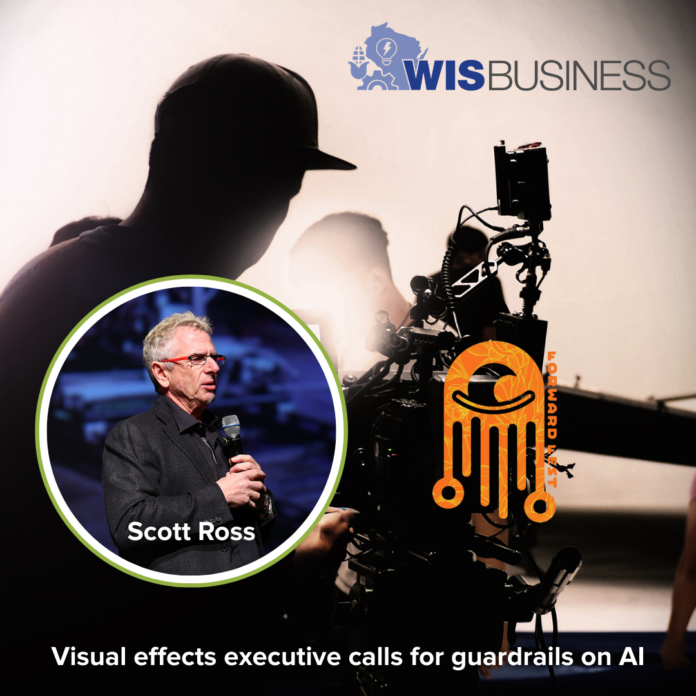A visual effects executive says “there needs to be guardrails” on AI as the technology becomes increasingly skilled at producing high-quality images and animation.
Scott Ross, who co-founded the Academy Award-winning studio Digital Domain Inc., discussed this topic during last week’s Forward Fest in Madison. Ross led Lucasfilm’s Industrial Light and Magic in the 1980s and later launched Digital Domain, Inc. in 1993 alongside film director James Cameron.
“For certain artists, these tools will be a boon and beneficial, and for other artists, they will not,” Ross said. “And it also depends upon how ethical the people that are building large language models are, and whether they’re scraping the internet or whether they’re licensing things … but it’s the wild, wild west now.”
Referencing the history of the internet as a comparison, he argued “guardrails are not the most important thing for people in power and people that run companies. The most important thing is profit.”
He also said other nations competing for AI supremacy are unlikely to implement restrictive regulations of their own, pointing to Russia, China and North Korea as examples.
Ross, who played a role in the film effects industry’s transition from analogue to digital technology, discussed concerns at the time about people losing their jobs, drawing a parallel with modern concerns about AI replacing workers.
“Everybody thought everybody was going to lose their jobs, and since I was there I’ll tell you that a few people did because they didn’t, you know, sort of come on board the digital train,” he said. “But in fact, there were a lot more people hired as a result, and the industry went international as a result.”
Ultimately, the digital revolution in the industry provided a new toolset for those in the field, enabling them to do things they couldn’t before.
“There have been things that are done that are bad, there have been things that are done that are better,” Ross said. “I mean, Jim couldn’t have done Avatar had it not been for CGI and the like, but those are tools, and the fundamental difference is with AI, it’s not just a tool. It’s actually an agent, you can ask it to do things.”
He argues AI is still essentially in its infancy, noting “it’s not perfect yet” but continues to rapidly advance and improve.
“Look how far generative AI … has come in visual effects and animation and production from let’s say a year and a half ago,” he said, adding “this infant is growing fast, faster than anything you’ve ever seen.”
Watch the video and see more coverage from Forward Fest.







